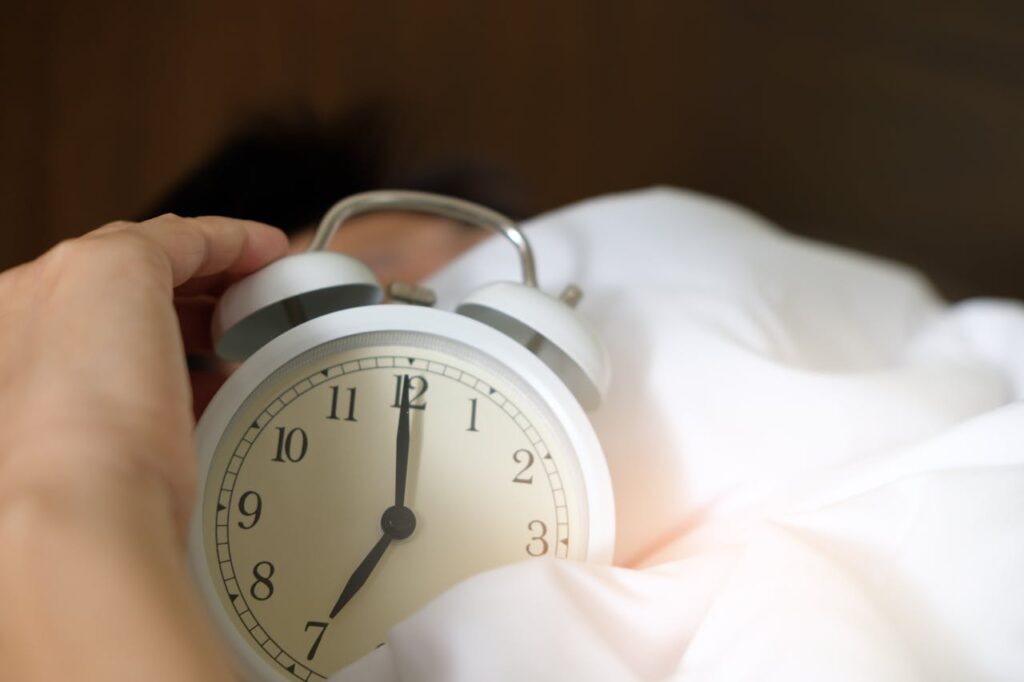Welcome to our comprehensive guide on “The Science of Sleep: Stages and Cycles.” In this article, we’ll delve into the fascinating world of sleep, exploring the different stages of the sleep cycle and how they impact our overall well-being. Understanding the science behind sleep stages and cycles is crucial for optimizing sleep quality and ensuring that we wake up feeling refreshed and rejuvenated each morning. So let’s dive in and explore the intricacies of the sleep cycle together
Table of Contents
Why Sleep Matters
Sleep is a fundamental aspect of human biology, playing a crucial role in our physical and mental well-being. Understanding the science behind sleep stages and cycles is essential for appreciating why sleep matters.
Importance of Sleep
Sleep is not just a period of rest; it is a complex process that allows our bodies and brains to recharge and repair. During sleep, our bodies undergo essential processes that help maintain optimal health.
Physical Health
Sleep plays a vital role in physical health. It is during sleep that the body repairs tissues, consolidates memories, and releases essential hormones. Adequate sleep is linked to a lower risk of chronic diseases such as heart disease, diabetes, and obesity.
Mental Health
Sleep also has a significant impact on our mental health. It affects our mood, cognitive function, and emotional well-being. Getting enough sleep improves concentration, productivity, and overall mental well-being.
The Consequences of Sleep Deprivation
Chronic sleep deprivation can have serious consequences. It can impair judgment, coordination, and reaction times, increasing the risk of accidents and injuries. Long-term sleep deprivation is associated with an increased risk of depression, anxiety, and other mental health disorders.
Importance of Understanding Sleep Stages and Cycles
Understanding the science of sleep stages and cycles is essential for optimizing sleep quality. By understanding the different stages of sleep, we can identify areas for improvement and make changes to our sleep habits to ensure a more restful night’s sleep.
The Sleep Cycle
The sleep cycle is a recurring pattern of sleep stages that occurs throughout the night. Understanding the sleep cycle is essential for understanding the science of sleep stages and cycles.

Introduction to the 4 stages Sleep Cycle
The sleep cycle consists of four stages: three stages of non-REM (NREM) sleep and one stage of REM (rapid eye movement) sleep. Each stage is characterized by distinct patterns of brain activity and physiological changes.
Stage 1: NREM Sleep
Stage 1 is the lightest stage of sleep. During this stage, you may drift in and out of sleep and can be easily awakened. Brain waves begin to slow down, and you may experience sudden muscle contractions called hypnic jerks. This stage typically lasts for about 5-10 minutes.
Stage 2: NREM Sleep
Stage 2 is a slightly deeper stage of sleep. Brain waves continue to slow down, and you become disengaged from your surroundings. Sleep spindles (short bursts of brain activity) and K-complexes (sudden, sharp waveforms) occur during this stage, helping to prevent you from being awakened easily. Stage 2 sleep makes up a significant portion of total sleep time.
Stages 3 and 4: Deep NREM Sleep
Stages 3 and 4 are the deepest stages of NREM sleep, also known as slow-wave sleep (SWS). During these stages, brain waves slow down even further, and it becomes difficult to wake up. This is the stage of sleep where the body repairs and regenerates tissues, muscles, and bones. Growth hormone is also released during this stage, which is essential for growth and development.
REM Sleep
REM sleep is the final stage of the sleep cycle. During REM sleep, brain activity increases, and the eyes move rapidly from side to side. This is the stage of sleep where dreaming occurs, and the brain consolidates memories and processes emotions. REM sleep is essential for cognitive function and emotional well-being.
The Sleep Cycle Repeats
The sleep cycle repeats throughout the night, with each cycle lasting approximately 90-110 minutes. As the night progresses, the amount of time spent in REM sleep increases, while the amount of time spent in deep NREM sleep decreases.
The Sleep Cycle Repeats
The sleep cycle is not a one-time event but rather a recurring pattern that repeats throughout the night. Understanding how the sleep cycle repeats is essential for optimizing sleep quality and overall well-being.
Repeating Patterns
The sleep cycle consists of four stages: three stages of non-REM (NREM) sleep and one stage of REM (rapid eye movement) sleep. Each cycle typically lasts for about 90-110 minutes, and throughout the night, these cycles repeat multiple times.
Progression of Sleep Stages
As the night progresses, the duration and proportion of each sleep stage within the cycle change. In the earlier cycles of the night, more time is spent in deep NREM sleep (stages 3 and 4), while REM sleep periods are shorter.
Changes in REM Sleep
As the night progresses, the amount of time spent in REM sleep increases, while the amount of time spent in deep NREM sleep decreases. REM sleep periods become longer and more frequent towards the end of the night.
Importance of Cycling Through Sleep Stages
Cycling through all stages of the sleep cycle is essential for achieving restorative sleep. Each stage of sleep plays a unique role in promoting physical and mental well-being, and skipping or shortening any stage can lead to sleep disturbances and daytime drowsiness.
Factors Affecting Sleep Cycle
Various factors can influence the duration and quality of each sleep stage within the cycle. Age, lifestyle factors, and sleep disorders can all affect the sleep cycle, leading to disruptions in sleep continuity and overall sleep quality.
Optimizing Sleep Quality
Understanding how the sleep cycle repeats can help individuals optimize their sleep quality. By prioritizing healthy sleep habits and creating a sleep-friendly environment, individuals can ensure that they cycle through all stages of the sleep cycle effectively, leading to more restful and rejuvenating sleep.
Understanding the repeating nature of the sleep cycle is crucial for achieving optimal sleep quality and overall well-being.

Factors Affecting Sleep Stages and Cycles
Several factors can influence the duration and quality of each sleep stage within the sleep cycle. Understanding these factors is essential for optimizing sleep quality and overall well-being.
Age
Age plays a significant role in the sleep cycle. As we age, the structure and duration of our sleep cycles change. Babies and young children have shorter sleep cycles, with more time spent in REM sleep. As we get older, the amount of time spent in REM sleep decreases, and the time spent in deep NREM sleep also decreases.
Lifestyle Factors
Lifestyle factors such as stress, diet, and exercise can all affect the sleep cycle. High levels of stress can lead to disruptions in the sleep cycle, making it difficult to fall asleep and stay asleep. Poor diet and lack of exercise can also negatively impact sleep quality, leading to shorter sleep cycles and less time spent in restorative sleep stages.
Sleep Disorders
Sleep disorders such as insomnia, sleep apnea, and restless legs syndrome can all disrupt the sleep cycle. These disorders can prevent individuals from cycling through all stages of the sleep cycle effectively, leading to poor sleep quality and daytime drowsiness.
Environmental Factors
Environmental factors such as noise, light, and temperature can also affect the sleep cycle. A noisy or brightly lit environment can make it difficult to fall asleep and stay asleep, disrupting the natural progression of the sleep cycle. Creating a sleep-friendly environment by minimizing noise and light and keeping the bedroom cool and comfortable can help optimize sleep quality.
Medications and Substances
Certain medications and substances can also affect the sleep cycle. Stimulants such as caffeine and nicotine can disrupt the sleep cycle, making it difficult to fall asleep and stay asleep. Certain medications, such as antidepressants and beta-blockers, can also affect sleep quality and the duration of each sleep stage within the cycle.
Optimizing Sleep Quality
Understanding the factors that affect sleep stages and cycles is essential for optimizing sleep quality. By addressing lifestyle factors, creating a sleep-friendly environment, and seeking treatment for sleep disorders, individuals can ensure that they cycle through all stages of the sleep cycle effectively, leading to more restful and rejuvenating sleep.
Monitoring Sleep Stages and Cycles
Monitoring sleep stages and cycles is essential for understanding sleep patterns and identifying potential sleep disorders. Several methods can be used to monitor sleep stages and cycles, providing valuable insights into sleep quality and overall well-being.
Polysomnography (PSG)
Polysomnography, or PSG, is considered the gold standard for monitoring sleep stages and cycles. During a PSG study, various physiological parameters are monitored, including brain waves, eye movements, muscle activity, heart rate, and breathing patterns. PSG provides detailed information about the different stages of sleep and can help identify sleep disorders such as sleep apnea, insomnia, and narcolepsy.
Actigraphy
Actigraphy is a non-invasive method of monitoring sleep-wake patterns using a small device worn on the wrist. The device measures movement and light exposure, providing information about sleep duration, sleep efficiency, and the timing of sleep stages. Actigraphy is often used to assess sleep patterns over an extended period, such as several days or weeks, in naturalistic settings.
Sleep Tracking Apps
Several smartphone apps are available that claim to monitor sleep stages and cycles using the device’s accelerometer and microphone. While these apps may provide some basic information about sleep duration and movement during sleep, they are generally not as accurate as PSG or actigraphy for monitoring sleep stages and cycles.
Wearable Sleep Trackers
Wearable sleep trackers, such as fitness bands and smartwatches, use sensors to monitor movement, heart rate, and sometimes even blood oxygen levels during sleep. While these devices may not be as accurate as PSG, they can provide valuable insights into sleep patterns and trends over time.
Home Sleep Tests
Home sleep tests are portable devices that can be used to screen for sleep apnea and other sleep-related breathing disorders. These devices typically monitor breathing patterns, blood oxygen levels, and heart rate during sleep. While home sleep tests may not provide as much information as PSG, they can be a convenient and cost-effective alternative for diagnosing certain sleep disorders.
Tips for Improving Sleep Quality
Improving sleep quality is essential for overall health and well-being. By implementing healthy sleep habits and creating a sleep-friendly environment, you can optimize your sleep quality and wake up feeling refreshed and rejuvenated.

Maintain a Consistent Sleep Schedule
Going to bed and waking up at the same time every day, even on weekends, helps regulate your body’s internal clock and promotes better sleep quality. Consistency is key for establishing healthy sleep patterns.
Create a Relaxing Bedtime Routine
Establishing a relaxing bedtime routine can signal to your body that it’s time to wind down and prepare for sleep. Activities such as reading, taking a warm bath, or practicing relaxation techniques can help relax your mind and body before bed.
Create a Comfortable Sleep Environment
Your sleep environment plays a significant role in sleep quality. Make sure your bedroom is dark, quiet, and cool, and invest in a comfortable mattress and pillows that provide adequate support.
Limit Exposure to Screens Before Bed
The blue light emitted by screens can interfere with your body’s natural sleep-wake cycle and make it harder to fall asleep. Limit screen time before bed, and consider using a blue light filter on your electronic devices.
Avoid Stimulants Before Bed
Stimulants such as caffeine and nicotine can interfere with your ability to fall asleep and stay asleep. Avoid consuming stimulants in the hours leading up to bedtime, and opt for decaffeinated beverages instead.
Limit Naps During the Day
While short naps can be beneficial, especially if you’re feeling tired during the day, long or irregular naps can interfere with your ability to fall asleep at night. Limit naps to 20-30 minutes and avoid napping late in the day.
Get Regular Exercise
Regular physical activity can improve sleep quality by helping you fall asleep faster and enjoy deeper sleep. Aim for at least 30 minutes of moderate exercise most days of the week, but avoid vigorous exercise close to bedtime.
Watch What You Eat and Drink
Avoid heavy meals, spicy foods, and excessive fluids before bedtime, as they can cause discomfort and disrupt sleep. Opt for light, easily digestible snacks if you’re hungry before bed, and limit your intake of fluids to reduce the need for nighttime bathroom trips.
Manage Stress and Anxiety
Stress and anxiety can interfere with sleep quality and make it difficult to relax and fall asleep. Practice stress-reducing techniques such as deep breathing, meditation, or yoga to help calm your mind and prepare for sleep.
Conclusion of The Science of Sleep: Stages and Cycles.
Understanding the science of sleep stages and cycles is essential for optimizing sleep quality and overall well-being. By recognizing the importance of each stage of the sleep cycle and implementing healthy sleep habits, you can improve your sleep quality and wake up feeling refreshed and rejuvenated.
From maintaining a consistent sleep schedule to creating a relaxing bedtime routine and managing stress and anxiety, there are many steps you can take to improve your sleep quality. Creating a comfortable sleep environment, limiting exposure to screens before bed, and avoiding stimulants and heavy meals can also contribute to better sleep.
Monitoring sleep stages and cycles using methods such as polysomnography, actigraphy, and sleep tracking apps can provide valuable insights into your sleep patterns and help identify potential sleep disorders. By paying attention to your sleep habits and making adjustments as needed, you can ensure that you cycle through all stages of the sleep cycle effectively, leading to more restful and rejuvenating sleep.
Prioritizing sleep is essential for overall health and well-being. By following these tips for improving sleep quality and understanding the factors that affect sleep stages and cycles, you can enjoy the many benefits of a good night’s sleep, including improved mood, cognitive function, and physical health.
Here’s to better sleep and a healthier, happier life. Goodnight!





